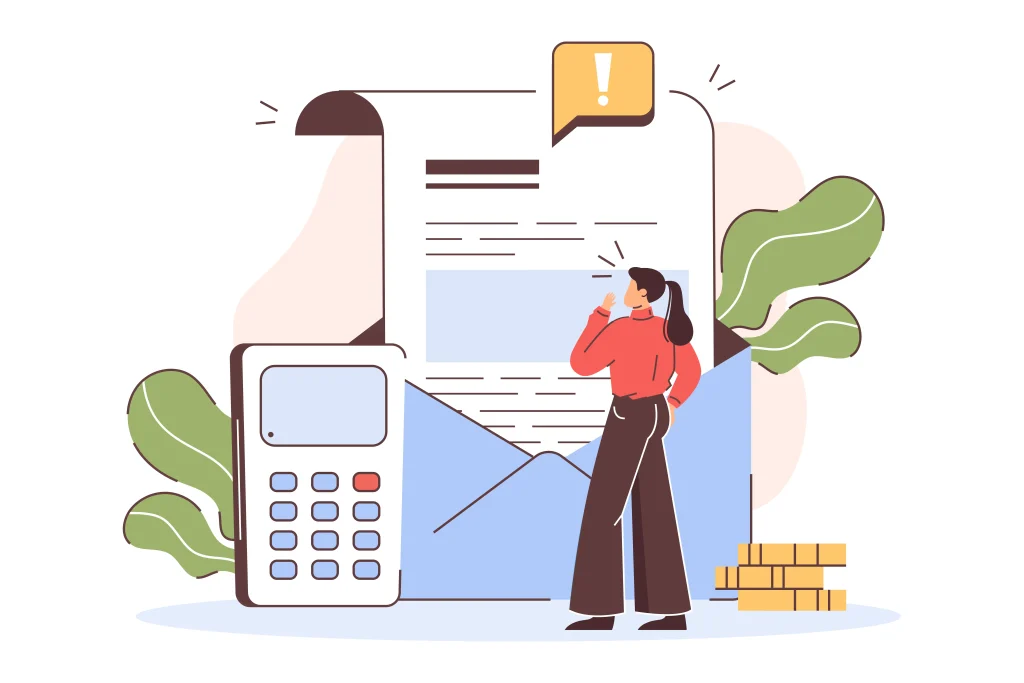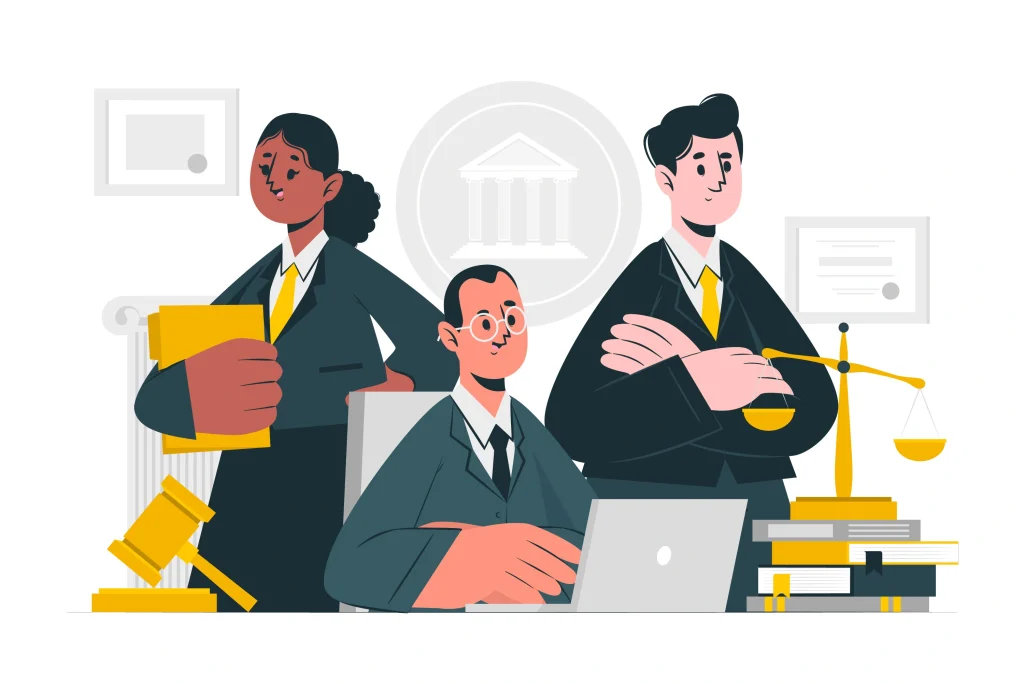🚨Are You Receiving Debt Collection Calls from Global Processing Services❓
Are you tired of Global Processing Services Debt Collection Harassment? Do you wish there was a way to make the calls stop? Global Processing Services does not have to keep harassing you. We totally understand the situation you are in; one day you’re only a child with no burdens and responsibilities, and the next, you’re an adult saddled with debts and getting calls from debt collectors like GP services collections. One of the most stressful things that come with being in debt is having to endure and deal with debt collection calls.
A debt collector is a third-party agency assigned to recover debts on behalf of original creditors or businesses. Third-party debt collectors like Global Processing Services debt collection agency come into the picture when a debt is left unpaid for up to 100 days or more, depending on your original creditor.
When your creditor is unable to recover a debt from you, they can choose to transfer the responsibility of recovering the debt to a third-party debt collector. This may be why you’re getting GP services collections calls.
Additionally, be cautious of identity theft, as scammers may use your personal information to create fake debts. It is also important to report incidents involving fake debt collectors to major credit reporting agencies to protect your financial information from further scams.
Debt collectors get paid whenever they successfully recover a debt, thus, they put a lot of energy and effort into attempting to recover the debts you owe them.
Sometimes, debt collectors go too far and begin to harass the consumer, making the consumer almost resort to changing their phone number. Gladly, there are other ways to deal with Global Processing Services phone harassment without having to change your number.
Federal laws like the FDCPA and TCPA prohibit GP services debt collector phone harassment. If a debt collector is harassing you, call a qualified lawyer now at 877-700-5790.
💡Understanding Global Processing Services LLC
Global Processing Services, LLC is a company that has garnered attention for its involvement in debt collection activities. However, there have been accusations of suspicious and potentially fraudulent practices associated with their operations. Understanding who they are and how they operate is crucial to protect yourself from falling victim to debt collection scams.
It is also important to report incidents involving fake debt collectors to major credit reporting agencies. This can help place fraud alerts or credit freezes to protect your financial information from further scams.
Debt collection scams are unfortunately common, and they can cause significant stress and financial harm. It’s essential to be vigilant and informed about the tactics used by some debt collectors. By knowing more about Global Processing Services, LLC, you can take the necessary steps to verify the legitimacy of any debt collection attempts and avoid being scammed.
Who are Global Processing Services?
Global Processing Services, LLC is a debt collection company that has been accused of engaging in suspicious and potentially fraudulent activities. They have been reported to regulatory agencies for engaging in deceptive and unfair business practices, including using high-pressure tactics to try to collect debts and making false allegations and threatening lawsuits without providing any information about the debt.
Understanding the reputation and practices of Global Processing Services debt collector can help you be more vigilant and protect yourself from potential scams.
Address: 155 Blanding Blvd Ste 6c-d Orange Park, FL 32073-2630 Phone: (888) 559-1994
Other names: Mediation Processing Services, LLC
Is Global Processing Services a Debt Collection Scam?
According to the Better Business Bureau, Global Processing Services has been in business for 12 years. There have been 23 complaints closed in the last 3 years and 13 closed in the last 12 months.
If you find inaccuracies in your credit report, consider seeking assistance from a reputable credit repair company.

Some of Your Consumer Rights in the Context of FDCPA
You may have heard so many things said about the FDCPA but you’re not really sure what exactly they’re doing for you and what rights they give you. Below are some of your rights under the FDCPA. You can enforce these any time during Global Processing Services debt collection.
- You can ask Global Processing Services collection agency or any other legitimate debt collectors questions. This is one right the FDCPA gives you which if used well, can help you avoid a lot of debt collection stress. When a debt collector calls you, you are allowed to ask them questions like who you are, where are you calling from, who is the creditor, and how much is the debt, and the debt collector is mandated to respond.
- You can stop Global Processing Services from calling you. This is important if you’ve been enduring GP services debt collector phone harassment. The FDCPA allows you to tell a debt collector to stop calling you. If they do not heed, send them a cease-and-desist letter.
- You can tell Global Processing Services debt collector, when to call you and when not to. Generally, debt collectors shouldn’t call you at odd hours (hours outside of 8 am-9 pm). However, if any other time is still inconvenient for you, you can tell Global Processing Services collections not to call you then.
- You can make a debt validation request. If you’re unsure about a debt, you can make a debt validation request. This means that the debt collector has to send you full documents about the debt.
- You can sue a debt collector. This is not always the best move but in cases of extreme GP services debt collector harassment, you have the right to sue a debt collector and you can even get paid for damages.
- You can report fake debt collectors to major credit reporting agencies. This helps protect your financial information and can lead to placing fraud alerts or credit freezes to prevent further scams.
Warning Signs of Debt Collector Harassment
If you are experiencing any of the following, it may be a sign of debt collector harassment:
- Multiple calls or messages from a debt collector in a short period
- Threats of legal action or arrest
- Demands for payment without providing information about the debt
- Use of high-pressure tactics to get you to pay
- Contact from a debt collector who refuses to provide their name or company information
- Receiving calls or messages from a debt collector at unreasonable times or places
Recognizing these warning signs early can help you take the necessary steps to protect yourself from harassment.

How to Handle Global Processing Services Debt Collection Harassment
You do not have to be pestered and stressed just because you owe. Debt collectors have no right to make you feel uncomfortable, unsafe, or disrespected. However, not knowing what to do when debt collectors call can lead to many mistakes that could have otherwise been easily avoided. Many people are caught off-guard when debt collectors call them, and they end up making a mess of the situation. Many consumers report receiving multiple calls daily, which can be overwhelming and stressful.
If you are being harassed by a debt collector, here are a few things you could do:
- Be calm: Collect your emotions and control them. It is okay to ask a debt collector to call you at a later time if you are not ready to speak at that moment. Try not to get annoyed and speak in anger because that will not get you anywhere.
- Listen more than you speak: When you eventually speak to the debt collector, do not be in a hurry to divulge information to them. Listen to them speak and get as much information as possible.
- Ask for proof that you owe the debt: The FDCPA allows you to request a debt validation letter. When you do this, the collection agency is mandated to send you proof of what you owe.
- Ask the debt collector to stop harassing you: Verbally asking a debt collector to stop harassing you may not work all the time, but it works sometimes, especially when you let them know that you are aware of your rights and the consequences for them when they violate it.
- Send a cease-and-desist letter: You also have the option of asking the debt collector to stop contacting you by sending them a cease-and-desist letter.
- Make plans to pay the debt: When you are certain that the debt is yours, begin making plans to pay it.
- Leverage on their violation to negotiate: You can leverage on the collection agency’s violation to make negotiations with them, by making an agreement for a better payment option for you, in return for not filing a case against them.
- Sue the collection agency: You have the right to sue a debt collector who has harassed you. You can be awarded up to $1,000 if you win the case.
- Report fake debt collectors to major credit reporting agencies: Informing these agencies can help place fraud alerts or credit freezes to protect your financial information from further scams.

Verifying the Debt and Collector
To safeguard yourself from debt collection scams, it’s vital to verify both the debt and the collector. Here are some steps you can take:
- Check your credit report: Obtain a copy of your credit report from the three major credit reporting agencies—Experian, TransUnion, and Equifax. This will help you see if the debt in question is listed on your report.
- Verify the debt: Contact the creditor or debt collector directly to verify the debt. Request documentation that supports their claim, such as the original contract or account statements.
- Check for red flags: Be cautious of debt collectors who use high-pressure tactics, demand immediate payment, or threaten you with arrest or lawsuits. These are common signs of a debt collection scam.
- Research the company: Look up the company online to see if there are any complaints or negative reviews filed against them. This can provide insight into their legitimacy and business practices.
- Report fake debt collectors: If you suspect you are dealing with fake debt collectors, report the incident to the major credit reporting agencies. Informing these agencies can help protect your financial information by placing fraud alerts or credit freezes.
By following these steps, you can ensure that you are dealing with a legitimate debt collector and not falling prey to a scam.

Filing a Complaint Against a Debt Collector
If you believe you are a victim of a debt collection scam or have been harassed by a debt collector, you have the right to file a complaint with the appropriate authorities. Here are some steps you can take:
- Contact local law enforcement: File a complaint with your local police or sheriff’s department. They can help investigate the matter and provide guidance on what to do next.
- File a complaint with the Federal Trade Commission (FTC): The FTC is responsible for enforcing fair debt collection practices. You can file a complaint online through their website.
- File a complaint with the (CFPB): The CFPB regulates debt collectors and can take action against those who violate the law. You can submit a complaint on their website.
- Contact your state Attorney General’s office: Your state Attorney General’s office may have additional resources and can assist you with filing a complaint against a debt collector.
Taking these steps can help protect your rights and hold debt collectors accountable for any unlawful behavior.
GP Debt Collector Regulations
Debt collectors are regulated by both federal and state laws to ensure fair treatment of consumers. Here are some key regulations to be aware of:
- Fair Debt Collection Practices Act (FDCPA): The Fair Debt Collection Practices Act (FDCPA) prohibits debt collectors from engaging in unfair, deceptive, or abusive practices. This includes making false statements, using threats, and calling at unreasonable hours.
- Debt Collection Regulations: Debt collectors must provide clear and accurate information about the debt, respect your privacy, and avoid making false or misleading statements.
- State laws: Some states have additional laws and regulations governing debt collectors. These laws may provide further protections and impose stricter requirements on debt collection practices.
By understanding these regulations, you can better protect yourself from unfair treatment and ensure that debt collectors adhere to the law.
By understanding who GP services collections, LLC is and how to verify the debt and collector, you can protect yourself from debt collection scams and ensure that you are treated fairly by debt collectors.
🏛️CONSUMER RIGHTS LAW FIRM, PLLC
Consumer Rights Law Firm PLLC is a law firm that specializes in helping clients who are facing harassment from debt collectors. Falling victim to scams can result in losing more money, adding to your financial burden. If you suspect that your debt collection rights are being trampled upon, contact our office to begin the process to stop the harassment you may currently be receiving from Global Processing Services. Our office has been assisting consumers since 2010, and we have an A+ rating with the Better Business Bureau.
Call us at (877)700-5790 for immediate assistance.
FAQs
Who is Global Processing Services and why are they calling me?
Global Processing Services (GPS) is a third-party debt mediation and collection agency. They contact you because they believe you owe money on an account that has been forwarded to them by a creditor or another collection firm.
Are calls from Global Processing Services legit or a scam?
GPS is a legitimate company, but scammers sometimes spoof real agency names. Always ask for written debt validation before making any payment or sharing personal info.
Can GP services collections harass me with phone calls?
No. Under laws like the FDCPA, they cannot use repeated calls, threats, or abusive language. Harassment is illegal, and you have rights to stop abusive behavior.
How do I verify a debt claimed by Global Processing Services?
Within five days of their first contact, request a written validation notice stating the creditor, amount owed, and your right to dispute. They must provide this by law.
What should I do if GPS keeps calling me?
Keep a log of each call, send a certified cease-and-desist letter, and if calls continue, file a complaint with the FTC or CFPB and consider legal help.
Can I dispute a debt with Global Processing Services?
Yes. Send a written dispute within 30 days after you receive validation. They must pause collection until they verify the debt’s accuracy.
Will GP services collections affect my credit score?
Yes, they can report delinquent debts to credit bureaus, potentially lowering your score. You can dispute inaccuracies with the credit bureaus.
Can I sue Global Processing Services for illegal behavior?
Yes. If GPS violates laws like the FDCPA or TCPA—e.g., by harassment, robo-calling without consent—you may be entitled to sue for damages.
How can I stop Global Processing Services from calling me?
Send a written request instructing them to stop all phone contact. If calls persist, register complaints with the FTC, CFPB, or your state attorney general.
What are red flags that the calls from GPS might be a scam?
Watch for urges to pay by gift card or wire transfer, refusal to provide validation info, threats of legal action or arrest, or calls at odd hours—these are common scam signs.







